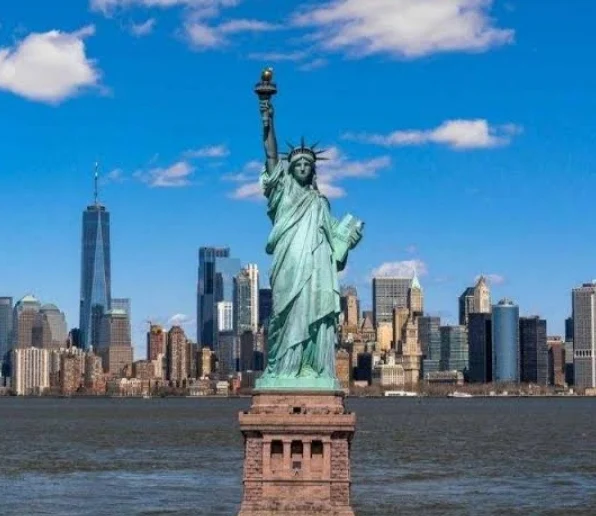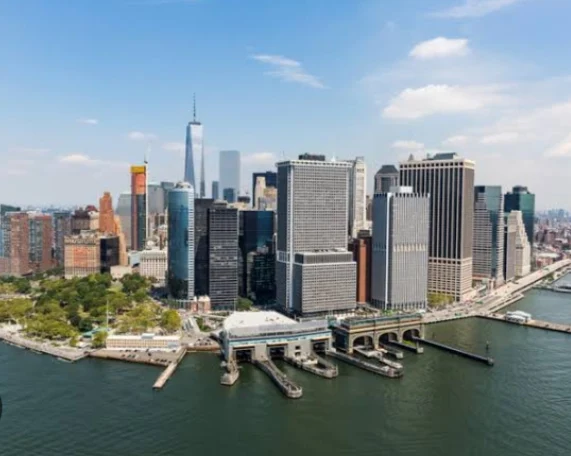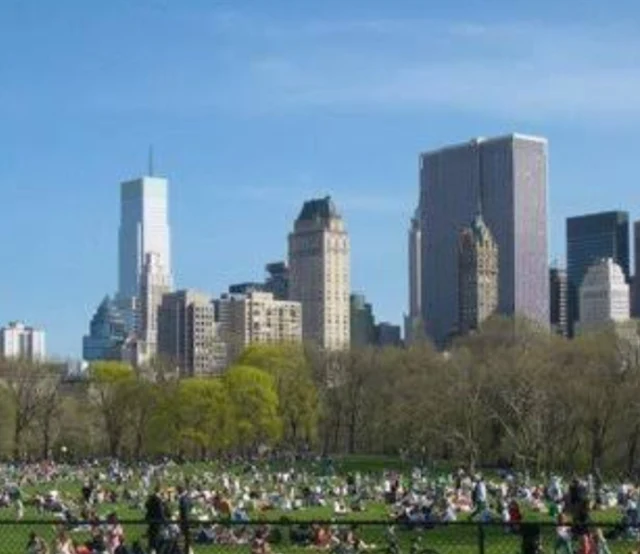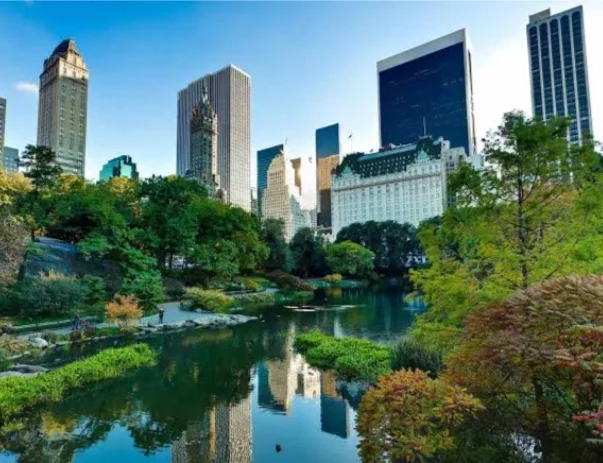Introduction Sustainability in New York City
New York City has various sustainability initiatives, including green building codes, expanded public transportation, and efforts to reduce carbon emissions.
Community gardens and renewable energy projects also contribute to NYC's commitment to environmental sustainability.
In recent years, NYC has made significant strides in enhancing its resilience to climate change. The city's comprehensive sustainability plan, "OneNYC," outlines ambitious goals such as achieving zero waste to landfills, improving air quality, and creating a more sustainable and equitable city. Additionally, initiatives like the "Cool Neighborhoods" program focus on addressing urban heat island effects, promoting green roofs, and increasing the number of trees to enhance overall urban resilience.
New York City's sustainability efforts extend beyond infrastructure and urban planning. The local government actively engages with businesses and communities to promote sustainable practices, and numerous eco-conscious events and programs encourage residents to participate in reducing their ecological footprint.
By fostering a culture of environmental responsibility, NYC is positioning itself as a global leader in sustainable urban development.
OneNYC
"OneNYC" is New York City's comprehensive sustainability plan, introduced by Mayor Bill de Blasio. Unveiled in 2015, this initiative outlines a vision for the city's future, emphasizing environmental sustainability, social equity, and economic growth. The plan encompasses ambitious goals to be achieved by 2030, focusing on areas such as reducing greenhouse gas emissions, enhancing resilience to climate change, and addressing issues related to affordable housing, public health, and job creation.
Under "OneNYC," specific targets include achieving zero waste to landfills, creating a more equitable distribution of green spaces, and improving public transportation. The plan reflects the city's commitment to fostering a sustainable and resilient urban environment while addressing the challenges posed by climate change and social disparities. "OneNYC" serves as a blueprint for guiding policies and initiatives that aim to make New York City a more sustainable and inclusive metropolis.
Sustainability in New York City: Regulation and Insensitive
New York City enforces sustainability through regulations and incentives that promote environmentally conscious practices. Building codes, like the NYC Energy Conservation Code, set standards for energy efficiency, encouraging green construction. Local Law 97, which imposes carbon emission limits on large buildings, exemplifies regulatory efforts to curb environmental impact.
Incentives, such as tax breaks and grants for sustainable initiatives, motivate businesses and individuals to adopt eco-friendly practices. These combined regulatory and incentive measures play a crucial role in fostering a culture of sustainability across various sectors in the city, driving positive environmental outcomes.
Sustainability in New York City: Green Building Codes
New York City has implemented robust green building codes to promote sustainability in construction and infrastructure. The NYC Energy Conservation Code sets standards for energy efficiency in buildings, emphasizing insulation, lighting, and HVAC systems. The city encourages green roof installations and mandates energy-efficient lighting and appliances in new constructions, contributing to reduced energy consumption and lower environmental impact.
Furthermore, initiatives like Local Law 97 aim to limit carbon emissions from large buildings, fostering a transition toward cleaner energy sources. These codes not only align with NYC's sustainability goals but also position the city as a leader in environmentally conscious urban development.
Sustainability in New York City: Public Transportation
New York City is committed to enhancing sustainability through its public transportation initiatives. The Metropolitan Transportation Authority (MTA) operates an extensive and well-connected transit system, including buses and subways, encouraging residents to opt for eco-friendly modes of transportation. Investments in expanding and modernizing public transit infrastructure aim to reduce reliance on personal vehicles, mitigating traffic congestion and lowering carbon emissions.
Efforts like the Vision Zero initiative prioritize pedestrian safety and aim to create more walkable neighborhoods, aligning with sustainability goals. As the city continues to invest in improving public transportation, it not only addresses environmental concerns but also promotes accessibility and efficiency, contributing to a more sustainable urban lifestyle.
NYC Energy Conservation Code
The NYC Energy Conservation Code is a set of regulations designed to enhance energy efficiency in buildings throughout New York City. It establishes standards for construction and renovation projects, focusing on various aspects such as insulation, lighting, and mechanical systems. The code aims to reduce energy consumption, lower greenhouse gas emissions, and promote sustainable building practices.
By implementing the NYC Energy Conservation Code, the city seeks to align with broader environmental goals, improve the overall efficiency of its building stock, and contribute to a more sustainable and resilient urban environment. Compliance with these codes is crucial for developers, architects, and construction professionals to ensure that new and renovated structures adhere to energy-efficient standards, ultimately reducing the environmental impact of the built environment in the city.
Renewable energy implementation in New York City
New York City has been actively working towards the integration of renewable energy sources to reduce its carbon footprint. Initiatives such as "NYC Clean Energy 2025" aim to transition the city to 100% clean electricity by 2025. The plan involves increasing the use of renewable energy, such as wind and solar power, in the city's energy mix.
Offshore wind projects, like the South Fork Wind Farm, represent a significant step in harnessing wind energy to meet the city's power needs. Moreover, solar installations on rooftops and the promotion of community solar programs contribute to decentralized renewable energy generation.
Legislation and policies, including the Climate Mobilization Act, set ambitious targets for renewable energy adoption and carbon emissions reduction. By fostering a sustainable energy landscape, New York City is actively striving to become a more environmentally friendly and resilient urban center.
Sustainability in New York City: Climate Mobilization Act
The Climate Mobilization Act is a landmark piece of legislation in New York City aimed at addressing climate change and enhancing sustainability. Passed in 2019, this act is a part of the city's broader efforts to reduce greenhouse gas emissions and increase resilience to the impacts of climate change. A key component of the Climate Mobilization Act is Local Law 97, which sets stringent carbon emission limits for large buildings, one of the major sources of emissions in the city.
The legislation encourages the retrofitting of existing buildings to meet energy efficiency standards and promotes the use of renewable energy sources. By implementing the Climate Mobilization Act, New York City demonstrates a commitment to achieving its climate goals, including the ambitious target of reducing carbon emissions by 80% by 2050. This multifaceted approach underscores the city's determination to play a leading role in global efforts to combat climate change.
NYC Clean Energy 2025
There wasn't specific information available on a program named "NYC Clean Energy 2025." However, it's plausible that developments or new initiatives have emerged since then. Please check the latest sources for the most
If "NYC Clean Energy 2025" is a recent or emerging initiative, it could be part of the city's broader efforts to transition to cleaner energy sources and achieve ambitious renewable energy goals. Such initiatives typically involve increasing the share of renewable energy in the city's energy mix, promoting energy efficiency, and implementing policies to address climate change and air quality.
Conclusion Sustainability in New York City
In conclusion, sustainability in New York City is a multifaceted and dynamic effort, driven by a combination of regulations, incentives, and innovative initiatives.
From stringent building codes and the Climate Mobilization Act to the promotion of renewable energy sources and comprehensive plans like "OneNYC," the city is actively working to reduce its environmental impact and build a more resilient future.
The integration of green building practices, advancements in public transportation, and a commitment to addressing climate change collectively showcase New York City's dedication to fostering a sustainable and equitable urban environment. As the city continues to evolve and implement new measures, it stands as a noteworthy example of urban sustainability on a global scale.










